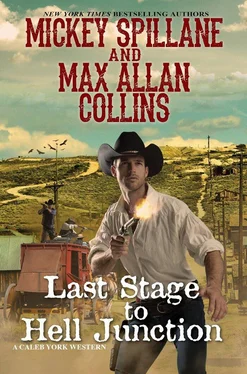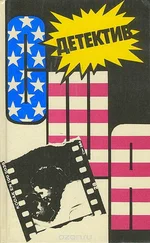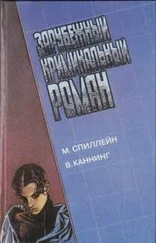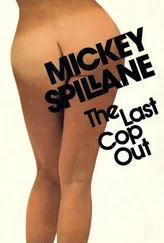Between bites, York said, “That note is what you were after?”
“You read it. You do read , I trust?”
“Enough to get by. Seems fine to me. Parker’s addressed it to a specific individual at his bank. His vice president. He put the address right there at the top, like a proper letter.”
Hargrave was nodding. “An address that you should have no great difficulty finding. Have you been to Denver before?”
“I have. I know my way around some.”
“Excellent. Here.”
The actor handed the ransom note back to York, who tucked it in a pocket of the buckskin jacket.
The table could seat four. Juanita brought her own plate over and joined them; she began eating everything with a spoon. Her table manners were terrible, but the ferociousness of her approach somehow seemed consistent with her lustful nature. She would make a good woman for the right man. Unfortunately the man she had chosen was a wrong one.
“You need to make this transaction quickly,” Hargrave said. “But don’t make the mistake of expecting it to go smoothly. If they hand the money right over to you, they are fools.”
“I doubt they’re fools.”
“As do I. So have this vice president accompany you with the money on the first train back to Las Vegas. He will no doubt insist on bringing along a bodyguard, a Pinkerton most likely. At Las Vegas, put them both on horses. Bring them to the rocky place at the bottom of the road to Hell Junction, where the pathways split off. Have them wait there. Ride in to town and I’ll ride back out with you, with Mr. Parker in tow.”
York nodded.
“Now,” Hargrave said, “I’m afraid I’m going to disappoint you.”
“Oh?”
He smirked humorlessly. “As much as I dislike witnesses myself, the breathing variety, that is, we simply must turn Mr. Parker over to his people. Otherwise, we would discourage payment in future such transactions, and who knows? I may need to make a guest out of some other rich bastard in the future.”
Juanita paused in her gobbling to ask, “What about your theater? Why would you need to go back to una vida peligrosa ?”
He looked at her patiently. “Most likely, querida , I will not have to. But the business of show has its ups and downs. We cannot rule out the need to raise capital in the future.”
She frowned, confused. “ Que es capital?”
“Money, child. ‘If money go before, all ways do lie open.’”
“I like money,” she said reasonably. “But killing? I do not like so much. I am a good Catholic girl.”
“Yes, you are, my sweet. Finish your food before it gets cold.”
“Bard says this?”
“No, Hargrave does.”
She shrugged, hunkered back over the plate and shoveled eggs into her.
York said, “All of this thieving is to build your own theater? Did I get that right?”
Hargrave nodded, pushed his plate aside, then drank some coffee.
York frowned. “How can the notorious leader of the Hargrave gang be out in the open like that? You don’t think Caleb York would track you down?”
“Not to Canada,” he said, smiled tight, and drank some more coffee. “Perhaps you might find that part of the world to your liking, as well, Bret. A theater needs more than one man to run it.”
And that was all the actor had to say on the subject.
York rose from the table. “I’ll go up and get your guests and stick them in the parlor. All right? With me gone, someone else will have to look after them.”
Hargrave shrugged. “Fetch them down for breakfast. A well-fed guest is a happy guest.”
When York exited the hotel, the Indian was again sitting cross-legged by the double doors. The little Apache with the red turban and blue jacket had a way of glaring without putting any expression on his face. He did that now, but York ignored him and his glare.
In a few minutes, York returned, walking the gelding — all saddled-up and ready — back to the Inn. The outlaws’ horses were hitched to the left. The buckboard with dead Ned Clutter in back in his wicker coffin was still tied up at the right, horse and all. The trotter had been denied the hay and the comforts of the livery stable. The sun was warmer today, so the flies were thicker.
Hargrave was waiting at the foot of the handful of steps up to the hotel porch.
York told him, “I’ll get back here as fast as I can. If I’m not back in two days, you may want to find somewhere else to be. Some other state, maybe.”
The actor’s rueful laugh was barely audible. “You’re probably right. By then Caleb York might find us, if we wear out our welcome here in Hell Junction.”
“He might.”
The outlaw held out his hand.
York took it, shook it.
“I’m full of fancy talk, Bret,” Hargrave said, his smile vaguely embarrassed. “But as the Bard says, ‘Words are easy, like the wind — faithful friends are hard to find.’ ”
Harder than you think , York thought, as he smiled back at the man, nodded, and climbed up onto the horse.
The ride out of Hell Junction was up a slope between two rocky hillsides, the one at his left rising and building into the mountain that once had given up enough silver to encourage the growth of a town, then been stingy enough to snuff it out. When the slope crested and leveled, before its gradual descent to the rocky area where yesterday York had faced three roads into these hills and mountains, he had a wooded area off to his right, beyond which was another rocky hill.
He had left town at a fast pace, but soon slowed the gelding to a gentle trot, having no intention of getting very far out of the ghost town before making his way back, to cut behind Main Street in back of the livery stable and the general store and the rest of the dead buildings. He sensed something and paused. Looked behind him and listened.
A pony was coming.
The hoofbeats told him as much, their lightness and how closely spaced they were. His smile had knowingness but little else in it, as he eased off the hard dirt road through the brush and into the trees, pulling up enough on the gelding’s reins to stop the animal, which he then walked into the woods aways. He tied it up on a small but sturdy tree.
He listened sharp.
The pony was still coming.
Which meant Hargrave had sent someone to quietly shadow him. The outlaw actor may have considered McCory a friend, but that did not mean Hargrave trusted him entirely. York, who already knew who’d been sent, made his way through the trees and brush, leaves whispering as he pushed back through to his left, to a spot where some rocks edged the road. There he crouched and waited, 44 in hand.
Broken Knife, on a small pinto, its coat patchy with brown and white, was making his steady way in his task of secret chaperone. Suddenly the Apache in the cavalry jacket frowned and pulled up on his reins, stopping the pony. Both rider and horse went still as a statue.
The Apache’s back was to York, who hid perhaps ten feet away. The little man’s head was raised, as his ears took in every sound. York made none. Then the Indian’s eyes traveled to the right, landing where York had left the road.
The Apache hopped off of the pony. From a sheath on his right hip he drew a big nasty-looking Bowie knife — the blade was long, nine inches anyway, and a good two inches wide; the wooden handle, walnut likely, had no guard. Crouching, making himself even smaller, the Apache held the Bowie tight in his sideways fist and crept toward the brush and the trees beyond.
York would have preferred to shoot the Indian and end this now. But they were still close enough to town that a shot might carry. Maybe he could take the Apache prisoner and leave him tied up in the woods, and slap the pony’s rump and hope it headed for somewhere else.
Читать дальше





![Микки Спиллейн - Death of the Too-Cute Prostitute [= Man Alone]](/books/437201/mikki-spillejn-death-of-the-too-thumb.webp)